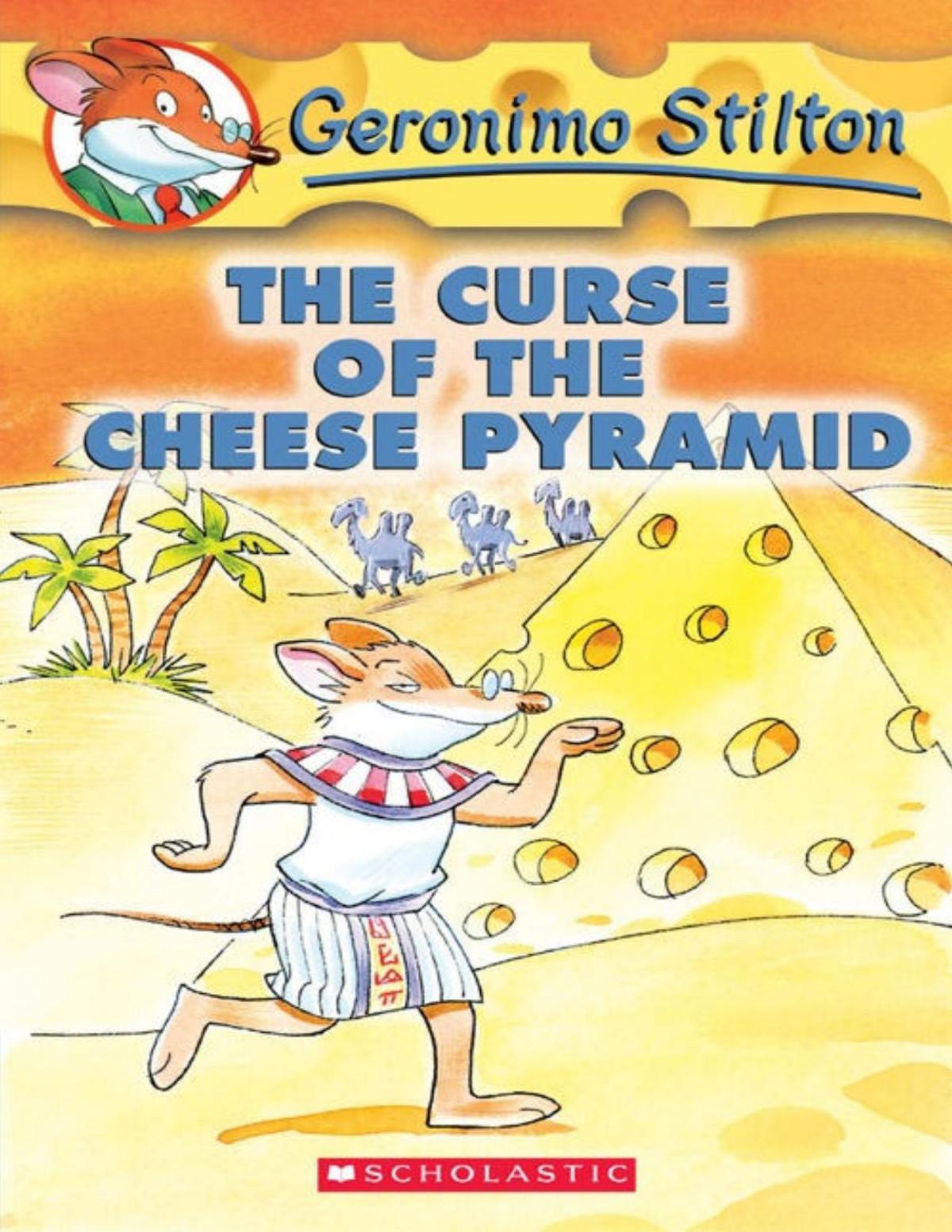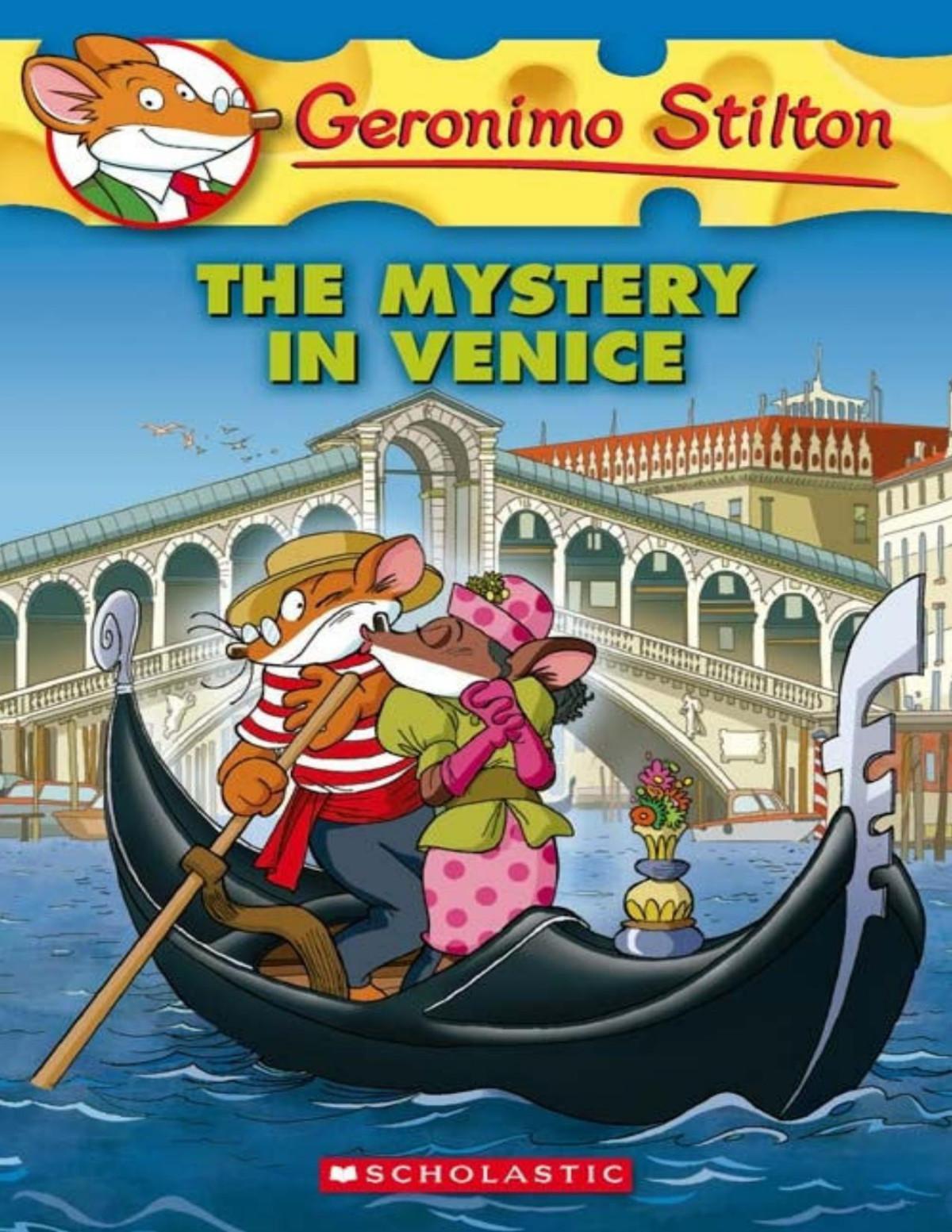Other documents randomly have different content
understand as only in round numbers. Anonym. Leobiens, in Pez. p. 970. According to this writer, above seventy persons died in some houses, and many were entirely deserted, and at St. Stephen’s alone, fifty-four ecclesiastics were cut off.
85 Auger. de Biterris in Muratori. Vol. III. P. II. p. 556. In Gobelin Person, the same is said of Paderborn, in Henr. Meibom. Rer. Germanic. Script. T. I. p. 286. Helmstadt: 1688. fol.
86 Spangenberg. Loc. cit. chap. 287, fol. 336–7.
87 Barnes. 435.
88 Trithem. Annal. Hirsaug. Loc. cit.
89 Loc. cit. L. XII. c. 99. p. 977.
90 Chronic. Claustro-Neuburg. in Pez. Vol. I. p. 490. Comp. Barnes p. 435. Raynald Histor. ecclesiastic Loc. cit. According to this, a runaway Venetian is said to have brought the plague to Padua.
91 Giov. Villani, L. XII. c. 83, p. 964.
92 Barnes, p. 436.
93 Wood, Loc. cit.
94 Wood says, that before the plague, there were 13,000 students at Oxford; a number, which may, in some degree, enable us to form an estimate of the state of education in England at that time, if we consider that the universities were, in the middle ages, frequented by younger students, who in modern times do not quit school till their 18th year.
95 Barnes and Wood. Loc. cit.
96 Gobelin Person, in Meibom. Loc. cit.
97 Juan de Mariana. Historia General de España. Illustrated by Don José Sabau y Blanco. Tom. IX. Madrid: 1819, 8vo. Libro XVI. p. 225. Don Diego Ortiz de Zuñiga, Annales ecclesiasticos y seculares de Sevilla. Madrid: 1795, 4to. T. II. p. 121. Don Juan de Ferreras, Historia de España. Madrid: 1721. T. VII. p. 353.
98 Gobelin Person. Loc. cit. V . Chalin, p. 53.
99 Guillelm de Nangis. Loc. cit.
100 Spangenberg. fol. 337. b. Limburg. Chronic. p. 20. “Und die auch von Rom kamen, wurden eines Theils böser als sie vor gewesen waren.”
101 Guillelm de Nangis. Loc. cit. and many others.
102 Dalin’s Svea Rikes Historie, Vol. II. c. xii. p. 496.
103 Saabye. Tagebuch in Grönland. Einleit. XVIII. Torfaei Histor. Norveg. Tom. IV. L. IX, c. viii. p. 478–79. F . G. Mansa, De epidemiis maxime memorabilibus quæ in Dania Grassatæ sunt, et de Medicinæ statu. Partic. I. Havn. 1831, 8vo. p. 12.
104 Torfaei Groenlandia antiqua, s. veteris Groenlandiæ descriptio. Havniæ, 1715, 8vo. p. 23—Potan. Rer. danicar. Histor. Amstelod. 1631, fol. L. VII. p. 476.
105 Richter, Loc. cit.
106 We may take this view of the subject from Guillelm de Nangis and Barnes, if we read them withattention. OlofDalin, Loc. cit.
107 Practica de aegritudinibus a capite usque ad pedes, Papiae, 1486, fol. Tract, VI. c. vii.
108 “Darnach, da das Sterben, die Geiselfarth, Römerfarth, Judenschlacht, als vorgeschrieben steht, ein End hatte, da hub die Welt wieder an zu leben und fröhlich zu seyn, und machten die Männer neue Kleidung.” Limburg Chronik, p. 26. After this when, as was stated before, the mortality, the processions of the Flagellants, the expeditions to Rome, and the massacre of the Jews, were at an end, the world begun to revive and be joyful, and the people put on new clothing.
109 Chalin, Loc. cit. p. 92. Detmar’s Lübeck Chronicle, T. I. p. 401.
110 Chronic. Ditmari, Episcop. Mersepurg, Francof. 1580, fol. p. 358. “Spangenberg, p. 338. The lamentation was pitiful; and the only remaining solace, was the prevalent anxiety, inspired by the danger, to prepare for a glorious departure; no other hope remained death appeared inevitable. Many were hence induced to search into their own hearts, to turn to God, and to abandon their wicked courses: parents warned their children, and instructed them how to pray, and to submit to the ways of
Providence: neighbours mutually admonished each other; none could reckon on a single hour’s respite. Many persons, and even young children, were seen bidding farewell to the world; some with prayer, others with praises on their lips.”
111 Torfaei Hist. rer. Norvegic, L. IX. c. viii, p. 478. (Havn. 1711, fol.) Die Cronica van der hilliger stat van Coellen, off dat tzytboich, Coellen, 1499, fol. p. 263. “In dem vurss jair erhoiff sich eyn alzo wunderlich nuwe Geselschaft in Ungarien.” &c. The Chronicle of the holy city of Cologne, 1499. In this same year, a very remarkable Society was formed in Hungary.
112 Albert. Argentinens. Chronic, p. 149, in Chr. Urstisius. Germaniae historicorum illustrium Tomus unus. Francof. 1585, fol. Guillelm de Nang. Loc. cit. See also the Saxon Chronicle, by Mattheus Dresseren, Physician and Professor at Leipsig, Wittenberg, 1596, fol. p. 340; the above-named Limburg Chronicle, and the Germaniae Chronicon, on the origin, name, commerce, &c., of all the Teutonic Nations of Germany: by Seb. Francken, of Wörd. Tubingen, 1534, fol. p. 201.
113 Königshoven, Elsassische und Strassburgische Chronicke. Loc cit. p. 297.
114 Albert Argentin. Loc. cit. They never remained longer than one night at any place.
115 Words of Monachus Paduanus, quoted in Förstemann’s Treatise, which is the best upon this subject. See p. 60.
116 Schnurrer, Chronicle of the Plagues, T. I. p. 291.
117 Königshoven. Loc. cit.
118 Förstemann, Loc. cit. The pilgrimages of the Flagellants of the year 1349, were not the last. Later in the 14th century, this fanaticism still manifested itself several times, though never to so great an extent: in the 15th century, it was deemed necessary, in several parts of Germany, to extirpate them by fire and sword; and in the year 1710, processions of the Cross-bearers were still seen in Italy. How deep this mania had taken root, is proved by the deposition of a citizen of Nordhäusen (1446): that his wife, in the belief of performing a Christian act, wanted to scourge her children, as soon as they were baptized.
119 Königshoven, p. 298: “Stantufdurchder reinen Martelere; Undhüte dichvor der Sünden mere.”
120 Guill. de Nang. Loc. cit.
121 Albert Argentinens. Loc. cit.
122 We meet with fragments of different lengths in the Chronicles of the times, but the only entire MS. which we possess, is in the valuable Library of President von Meusebach. Massmann has had this printed, accompanied by a translation, entitled Erläuterungen zum Wessobrunner Gebet des 8ten Jahrhunderts. Nebst ZWEIEN noch ungedruckten, GEDICHTEN DES VIERZEHNTEN JAHRHUNDERTS, Berlin, 1824. “Elucidation of the Wessobrunn Prayer of the 8th century, together with two unpublished Hymns of the 14th century.” We shall subjoin it at the end of this Treatise, as a striking document of the age. The Limburg Chronicle asserts, indeed, that it was not composed till that time, although a part, if not the whole, of it, was sung in the procession of the Flagellants, in 1260. See, Incerti auctoris Chronicon rerum per Austriam Vicinasque regiones gestarum inde ab anno 1025, usque ad annum 1282, Munich, 1827–8, p. 9.
123 Trithem. Annal. Hirsaugiens, T. II. p. 206.
124 He issued a bull against them, Oct. 20, 1349. Raynald. Trithem. Loc. cit.
125 But as they at last ceased to excite astonishment, were no longer welcomed by the ringing of bells, and were not received with veneration, as before, they vanished as human imaginations are wont to do. Saxon Chronicle, by Matt. Dresseren. Wittenberg, 1596, fol. p. 340–341.
126 Albert Argentinens. Loc. cit.
127 Guillelm de Nangis.
128 Ditmar. Loc. cit.
129 Klose of Breslaw’s Documental History and Description, 8vo. Vol. II. p. 190. Breslaw, 1781.
130 Limburg Chronicle, p. 17.
131 Kehrberg’s Description of Königsberg, i. e. Neumark, 1724, 4to. p. 240.
132 So says the Polish historian Dlugoss, Loc. cit., while most of his contemporaries, mention only the poisoning of the wells. It is evident, that in the state of their feelings, it mattered little to them to add another still more formidable accusation.
133 In those places where no Jews resided, as in Leipsig, Magdeburg, Brieg, Frankenstein, &c. the grave-diggers were accused of the crime. V. Möhsen’s History of the Sciences in the March of Brandenburg, T. II. p. 265.
134 See the original proceedings, in the Appendix.
135 Hermanni Gygantis Flores temporum, sive Chronicon Universale—Ed. Meuschen. Lugdun, Bat. 1743. 4to. p. 139. Hermann, a Franciscan monk of Franconia, who wrote in the year 1349, was an eye-witness of the most revolting scenes of vengeance, throughout all Germany.
136 Guid. Cauliac. Loc. cit.
137 Hermann. Loc. cit.
138 Albert Argentin. Königshoven, Loc. cit.
139 Dies was ouch die Vergift, die die Juden döttete. “This is also the poison that killed the Jews,” observes Königshoven, which he illustrates by saying, that their increase in Germany was very great, and their mode of gaining a livelihood, which, however, was the only resource left them, had engendered ill-will against them in all quarters.
140 Many wealthy Jews, for example, were, on their way to the stake, stripped of their garments, for the sake of the gold coin that was sewed in them. Albert Argentinens.
141 Vide preceding note.
142 Spangenberg. Loc. cit.
143 Guillelm. de Nangis. Dlugoss. Loc. cit.
144 Albert. Argentinens.
145 Spangenberg describes a similar scene which took place at Kostnitz.
146 Guillelm de Nang. Raynald.
147 Histor. Landgrav. Thuring. in Pistor. Loc. cit. Vol. I. p. 948.
148 Anonym. Leobiens, in Pez. Loc. cit.
149 Spangenberg. In the county of Mark, the Jews were no better off than in the rest of Germany. Margrave Ludwig, the Roman, even countenanced their persecutions, of which Kehrberg, Loc. cit. 241, gives the following official account: Coram cunctis Christi fidelibus praesentia percepturis, ego Johannes dictus de Wedel Advocatus, inclyti Principis Domini, Ludovici, Marchionis, publice profiteor et recognosco, quod nomine Domini mei civitaten Königsberg visitavi et intravi, et ex parte Domini Marchionis Consulibus ejusdem civitatis in adjutorium mihi assumtis, Judaeos inibi morantes igne cremavi, bonaque omnia eorundem Judaeorum ex parte Domini mei totaliter usurpavi et assumsi. In cujus testimonum praesentibus meum sigillum appendi. Datum A. D. 1351. in Vigilia S. Matthaei Apostoli.
150 Basnage Histoire des Juifs. A la Haye, 1716. 8vo. T. IX. Pt. II. Liv. IX. ch. 23. §. 12–24. p. 664–679. This valuable work gives an interesting account of the state of the Jews of the middle ages. Compare J. M. Jost’s History of the Israelites from the time of the Maccabees to the present day. T. VII. Berlin, 1827. 8vo. p. 8–262.
151 Albert Argentinens.
152 Hermann. Gygas. Loc. cit.
153 On this subject see Königshoven, who has preserved very valuable original proceedings. The most important are, the criminal examinations of ten Jews, at Chillon, on the Lake of Geneva, held in September and October, 1348. V. Appendix. They produced the most strange confessions, and sanctioned, by the false name of justice, the blood-thirsty fanaticism which lighted the funeral piles. Copies of these proceedings were sent to Bern and Strasburg, where they gave rise to the first persecutions against the Jews. V. also the original Document of the offensive and defensive Alliance between Berthold von Götz, Bishop of Strasburg, and many powerful lords and nobles, in favor of the city of Strasburg, against Charles IV. The latter saw himself compelled, in consequence, to grant to that city an amnesty for the Jewish persecutions, which in our days would be deemed
disgraceful to an imperial crown. Not to mention many other documents, which no less clearly shew the spirit of the 14th century, p. 1021. f.
154 Guillelm de Nangis. p. 110.
155 “Curationem omnem respuit pestis confirmata.”—Chalin, p. 33.
156 Jacob. Francischini de Ambrosiis. In the Appendix to the Istorie Pistolesi. Muratori, Tom. XI. p. 528.
157 Gentilis de Fulgineo, Consilia. De Peste cons. I. II. fol. 76. 77. Venet. 1514. fol.
158 “Venenosa putredo circa partes cordis et pulmonis de quibus exeunte venenoso vapore, periculum est in vicinitatibus.” Cons. I. fol. 76, a.
159 Dr. Maclean’s notion that the doctrine of contagion was first promulgated in the year 1547, by Pope Paul III. &c., thus falls to the ground, together with all the arguments founded on it. See Maclean on Epid. and Pestilent. Diseases, 8vo. 1817, Pt. II. Book II. ch. 3. 4. Transl. note.
160 Lippitudo contagione spectantium oculos afficit. Chalin de Vinario, p. 149.
161 See the Author’s Geschichte der Heilkunde, Vol. II. P. III.
162 Compare Marx, Origines contagii. Caroliruh. et Bad. 1824. 8.
163 Cael. Aurelian. Chron. L. IV. c. l. p. 497. Ed. Amman. “Sed hi ægrotantem destituendum magis imperant, quam curandum, quod a se alienum humanitas approbat medicinæ.”
164 Geschichte der Heilkunde, Vol. II. p. 248.
165 Chalin assures us expressly, that many nunneries, by closing their gates, remained free from the contagion. It is worthy of note, and quite in conformity with the prevailing notions, that the continuance in a thick, moist atmosphere, was generally esteemed more advantageous and conservative, on account of its being more impenetrable to the astral influence, inasmuch as the inferior cause kept off the superior. Chalin, p. 48.
166 This was called Affluxus, or Forma specifica, and was compared to the effect of a magnet on iron, and of amber on chaff. Chalin de Vinario, p. 23.
167 Causa universalis agens causa particularis patiens. To this correspond, in Chalin, the expressions Causa superior et inferior.
168 Purging with alöetic pills; bleeding; purification of the air by means of large fires; the use of treacle; frequent smelling to volatile substances, of which certain “poma,” were prepared; the internal use of Armenian bole, a plague-remedy derived from the Arabians, and, throughout the middle ages, much in vogue, and very improperly used; and the employment of acescent food, in order to resist putridity. Guy de Chauliac appears to have recommended flight to many. Loc. citat. p. 115. Compare Chalin, L. II. who gives most excellent precepts on this subject.
169 Auger. de Biterris. Loc. cit.
170 L. I. c. 4. p. 39.
171 Fol. 32. a. a. O.
172 Galeacii de Sancta Sophia, Liber de Febribus. Venet. 1514, fol. (Printed together with Guilelmus Brixiensis, Marsilius de Sancta Sophia, Ricardus Parisiensis. fol. 29. seq.)
173 Warmth, cold, dryness and moisture.
174 The talented Chalin entertains the same conviction, “Obscurum interdum esse vitium aëris, sub pestis initia et menses primos, hoc est argumento: quod cum nec odore tetro gravis, nec turpi colore fœdatus fuerit, sed purus, tenuis, frigidus, qualis in montosis et asperis locis esse solet, et tranquillus, vehementissima sit tamen pestilentia infestaque, etc.” p. 28. The most recent observers of malaria have stated nothing more than this.
175 Compare Enr. di Wolmar, Abhandlung über die Pest. Berlin, 1827. 8vo.
176 Tractatus de Febribus, fol. 48.
177 De Peste Liber, pura latinitate donatus a Jacobo Dalechampio, Lugdun. 1552. 16. p. 40. 188. “Longe tamen plurimi congressu eorum qui fuerunt in locis pestilentibus periclitantur et gravissime,
quoniam e causa duplici, nempe et aëris vitio, et eorum qui versantur nobiscum, vitio. Hoc itaque modo fit, ut unius accessu in totam modo familiam, modo civitatem, modo villam, pestis invehatur.” Compare p. 20, “Solæ privatorum aedes pestem sentiunt, si adeat qui in pestilenti loco versatus est.” “Nobis proximi ipsi sumus, nemoque est tanta occœcatus amentia, qui de sua salute potius quam aliorum sollicitus non sit, maxime in contagione tam cita et rapida.” Rather a loose principle, which might greatly encourage low sentiments, and much endanger the honor of the medical profession, but which, in Chalin, who was aware of the impossibility of avoiding contagion in uncleanly dwellings, is so far excusable, that he did not apply it to himself.
178 Morbos omnes pestilentes contagiosos, audacter ego equidem pronuntio et assevero, p. 149.
179 Vide preceding note, p. 162. 163.
180 Ibid. p. 97. 166. “Qualis (vita) esse solet eorum, qui sacerdotiorum et cultus divini prætextu, genio plus satis indulgent et obsequuntur, ac Christum speciosis titulis ementientes, Epicurum imitantur.” Certainly a remarkable freedom of sentiment for the 14th century.
181 Ibid. p. 183. 151.
182 Ibid. p. 159. 189.
183 Canonica de Febribus, ad Raynerium Siculum, 1487, s. l., cap. 10, sine pag. “Febris pestilentialis est febris contagiosa ex ebullitione putrefactiva in altero quatuor humorum cordi propinquorum principaliter.”
184 Valesci de Tharanta, Philonium. Lugdani, 1535. 8. L. VII., c. 18., fol. 401., b. seq. Compare Astruc, Mémoires pour servir à l’Histoire de la Faculté de Médicine de Montpellier, Paris, 1767. 4. p. 208.
185 Chronicon Regiense, Muratori, Tom. XVIII. p. 82.
186 Adr. Chenot, Hinterlassene Abhandlungen über die ärztlichen und politischen Anstalten bei der Pestseuche, Wien, 1798, 8vo. p. 146. From this period it was common in the middle ages to barricade the doors and windows of houses infected with plague,
and to suffer the inhabitants to perish without mercy. S. Möhsen, Loc. cit.
187 Chron. Reg. Loc. cit.
188 Muratori, Tom. XVI., p.560.—Compare Chenot, loc. cit. p. 146.
189 Papon, loc. cit.
190 Chenot, p. 145.
191 Le Bret, Staatsgeschichte der Republik Venedig. Riga, 1775. 4, Part II., Div. 2, p. 752.
192 Zagata, Cronica di Verona, 1744. 4, III., p.93.
193 Le Bret, loc. cit. Compare Hamburger Remarquen of the year 1700, p. 282 and 305.
194 Göttinger gelehrte Anzeigen, 1772, p. 22.
195 The forty days’ duration of the Flood, the forty days’ sojourn of Moses on Mount Sinai, our Saviour’s fast for the same length of time in the wilderness; lastly, what is called the Saxon term (Sächsische Frist,) which lasts for forty days, &c. Compare G. W. Wedel. Centuria Exercitationum Medico-philologicarum. De Quadragesima Medica. Jenae, 1701. 4, Dec. IV., p. 16.
196 We hence perceive with what feelings subterraneous thunders were regarded by the people.
197 For the sake of thy Trinity.
198 An appearance of justice having been given to all later persecutions by these proceedings, they deserve to be recorded as important historical documents. The original is in Latin, but we have preferred the German translation in Königshoven’s Chronicle, p. 1029.
*** END OF THE PROJECT GUTENBERG EBOOK THE BLACK DEATH IN THE FOURTEENTH CENTURY ***
Updated editions will replace the previous one—the old editions will be renamed.
Creating the works from print editions not protected by U.S. copyright law means that no one owns a United States copyright in these works, so the Foundation (and you!) can copy and distribute it in the United States without permission and without paying copyright royalties. Special rules, set forth in the General Terms of Use part of this license, apply to copying and distributing Project Gutenberg™ electronic works to protect the PROJECT GUTENBERG™ concept and trademark. Project Gutenberg is a registered trademark, and may not be used if you charge for an eBook, except by following the terms of the trademark license, including paying royalties for use of the Project Gutenberg trademark. If you do not charge anything for copies of this eBook, complying with the trademark license is very easy. You may use this eBook for nearly any purpose such as creation of derivative works, reports, performances and research. Project Gutenberg eBooks may be modified and printed and given away—you may do practically ANYTHING in the United States with eBooks not protected by U.S. copyright law. Redistribution is subject to the trademark license, especially commercial redistribution. START: FULL LICENSE
THE FULL PROJECT GUTENBERG LICENSE
PLEASE READ THIS BEFORE YOU DISTRIBUTE OR USE THIS WORK
To protect the Project Gutenberg™ mission of promoting the free distribution of electronic works, by using or distributing this work (or any other work associated in any way with the phrase “Project Gutenberg”), you agree to comply with all the terms of the Full Project Gutenberg™ License available with this file or online at www.gutenberg.org/license.
Section 1. General Terms of Use and Redistributing Project Gutenberg™ electronic works
1.A. By reading or using any part of this Project Gutenberg™ electronic work, you indicate that you have read, understand, agree to and accept all the terms of this license and intellectual property (trademark/copyright) agreement. If you do not agree to abide by all the terms of this agreement, you must cease using and return or destroy all copies of Project Gutenberg™ electronic works in your possession. If you paid a fee for obtaining a copy of or access to a Project Gutenberg™ electronic work and you do not agree to be bound by the terms of this agreement, you may obtain a refund from the person or entity to whom you paid the fee as set forth in paragraph 1.E.8.
1.B. “Project Gutenberg” is a registered trademark. It may only be used on or associated in any way with an electronic work by people who agree to be bound by the terms of this agreement. There are a few things that you can do with most Project Gutenberg™ electronic works even without complying with the full terms of this agreement. See paragraph 1.C below. There are a lot of things you can do with Project Gutenberg™ electronic works if you follow the terms of this agreement and help preserve free future access to Project Gutenberg™ electronic works. See paragraph 1.E below.
1.C. The Project Gutenberg Literary Archive Foundation (“the Foundation” or PGLAF), owns a compilation copyright in the collection of Project Gutenberg™ electronic works. Nearly all the individual works in the collection are in the public domain in the United States. If an individual work is unprotected by copyright law in the United States and you are located in the United States, we do not claim a right to prevent you from copying, distributing, performing, displaying or creating derivative works based on the work as long as all references to Project Gutenberg are removed. Of course, we hope that you will support the Project Gutenberg™ mission of promoting free access to electronic works by freely sharing Project Gutenberg™ works in compliance with the terms of this agreement for keeping the Project Gutenberg™ name associated with the work. You can easily comply with the terms of this agreement by keeping this work in the same format with its attached full Project Gutenberg™ License when you share it without charge with others.
1.D. The copyright laws of the place where you are located also govern what you can do with this work. Copyright laws in most countries are in a constant state of change. If you are outside the United States, check the laws of your country in addition to the terms of this agreement before downloading, copying, displaying, performing, distributing or creating derivative works based on this work or any other Project Gutenberg™ work. The Foundation makes no representations concerning the copyright status of any work in any country other than the United States.
1.E. Unless you have removed all references to Project Gutenberg:
1.E.1. The following sentence, with active links to, or other immediate access to, the full Project Gutenberg™ License must appear prominently whenever any copy of a Project Gutenberg™ work (any work on which the phrase “Project Gutenberg” appears, or with which the phrase “Project Gutenberg” is associated) is accessed, displayed, performed, viewed, copied or distributed:
This eBook is for the use of anyone anywhere in the United States and most other parts of the world at no cost and with almost no restrictions whatsoever. You may copy it, give it away or re-use it under the terms of the Project Gutenberg License included with this eBook or online at www.gutenberg.org. If you are not located in the United States, you will have to check the laws of the country where you are located before using this eBook.
1.E.2. If an individual Project Gutenberg™ electronic work is derived from texts not protected by U.S. copyright law (does not contain a notice indicating that it is posted with permission of the copyright holder), the work can be copied and distributed to anyone in the United States without paying any fees or charges. If you are redistributing or providing access to a work with the phrase “Project Gutenberg” associated with or appearing on the work, you must comply either with the requirements of paragraphs 1.E.1 through 1.E.7 or obtain permission for the use of the work and the Project Gutenberg™ trademark as set forth in paragraphs 1.E.8 or 1.E.9.
1.E.3. If an individual Project Gutenberg™ electronic work is posted with the permission of the copyright holder, your use and distribution must comply with both paragraphs 1.E.1 through 1.E.7 and any additional terms imposed by the copyright holder. Additional terms will be linked to the Project Gutenberg™ License for all works posted with the permission of the copyright holder found at the beginning of this work.
1.E.4. Do not unlink or detach or remove the full Project Gutenberg™ License terms from this work, or any files containing a part of this work or any other work associated with Project Gutenberg™.
1.E.5. Do not copy, display, perform, distribute or redistribute this electronic work, or any part of this electronic work, without prominently displaying the sentence set forth in paragraph 1.E.1
with active links or immediate access to the full terms of the Project Gutenberg™ License.
1.E.6. You may convert to and distribute this work in any binary, compressed, marked up, nonproprietary or proprietary form, including any word processing or hypertext form. However, if you provide access to or distribute copies of a Project Gutenberg™ work in a format other than “Plain Vanilla ASCII” or other format used in the official version posted on the official Project Gutenberg™ website (www.gutenberg.org), you must, at no additional cost, fee or expense to the user, provide a copy, a means of exporting a copy, or a means of obtaining a copy upon request, of the work in its original “Plain Vanilla ASCII” or other form. Any alternate format must include the full Project Gutenberg™ License as specified in paragraph 1.E.1.
1.E.7. Do not charge a fee for access to, viewing, displaying, performing, copying or distributing any Project Gutenberg™ works unless you comply with paragraph 1.E.8 or 1.E.9.
1.E.8. You may charge a reasonable fee for copies of or providing access to or distributing Project Gutenberg™ electronic works provided that:
• You pay a royalty fee of 20% of the gross profits you derive from the use of Project Gutenberg™ works calculated using the method you already use to calculate your applicable taxes. The fee is owed to the owner of the Project Gutenberg™ trademark, but he has agreed to donate royalties under this paragraph to the Project Gutenberg Literary Archive Foundation. Royalty payments must be paid within 60 days following each date on which you prepare (or are legally required to prepare) your periodic tax returns. Royalty payments should be clearly marked as such and sent to the Project Gutenberg Literary Archive Foundation at the address specified in Section 4, “Information
about donations to the Project Gutenberg Literary Archive Foundation.”
• You provide a full refund of any money paid by a user who notifies you in writing (or by e-mail) within 30 days of receipt that s/he does not agree to the terms of the full Project Gutenberg™ License. You must require such a user to return or destroy all copies of the works possessed in a physical medium and discontinue all use of and all access to other copies of Project Gutenberg™ works.
• You provide, in accordance with paragraph 1.F.3, a full refund of any money paid for a work or a replacement copy, if a defect in the electronic work is discovered and reported to you within 90 days of receipt of the work.
• You comply with all other terms of this agreement for free distribution of Project Gutenberg™ works.
1.E.9. If you wish to charge a fee or distribute a Project Gutenberg™ electronic work or group of works on different terms than are set forth in this agreement, you must obtain permission in writing from the Project Gutenberg Literary Archive Foundation, the manager of the Project Gutenberg™ trademark. Contact the Foundation as set forth in Section 3 below.
1.F.
1.F.1. Project Gutenberg volunteers and employees expend considerable effort to identify, do copyright research on, transcribe and proofread works not protected by U.S. copyright law in creating the Project Gutenberg™ collection. Despite these efforts, Project Gutenberg™ electronic works, and the medium on which they may be stored, may contain “Defects,” such as, but not limited to, incomplete, inaccurate or corrupt data, transcription errors, a copyright or other intellectual property infringement, a defective or
damaged disk or other medium, a computer virus, or computer codes that damage or cannot be read by your equipment.
1.F.2. LIMITED WARRANTY, DISCLAIMER OF DAMAGES - Except for the “Right of Replacement or Refund” described in paragraph 1.F.3, the Project Gutenberg Literary Archive Foundation, the owner of the Project Gutenberg™ trademark, and any other party distributing a Project Gutenberg™ electronic work under this agreement, disclaim all liability to you for damages, costs and expenses, including legal fees. YOU AGREE THAT YOU HAVE NO REMEDIES FOR NEGLIGENCE, STRICT LIABILITY, BREACH OF WARRANTY OR BREACH OF CONTRACT EXCEPT THOSE PROVIDED IN PARAGRAPH
1.F.3. YOU AGREE THAT THE FOUNDATION, THE TRADEMARK OWNER, AND ANY DISTRIBUTOR UNDER THIS AGREEMENT WILL NOT BE LIABLE TO YOU FOR ACTUAL, DIRECT, INDIRECT, CONSEQUENTIAL, PUNITIVE OR INCIDENTAL DAMAGES EVEN IF YOU GIVE NOTICE OF THE POSSIBILITY OF SUCH DAMAGE.
1.F.3. LIMITED RIGHT OF REPLACEMENT OR REFUND - If you discover a defect in this electronic work within 90 days of receiving it, you can receive a refund of the money (if any) you paid for it by sending a written explanation to the person you received the work from. If you received the work on a physical medium, you must return the medium with your written explanation. The person or entity that provided you with the defective work may elect to provide a replacement copy in lieu of a refund. If you received the work electronically, the person or entity providing it to you may choose to give you a second opportunity to receive the work electronically in lieu of a refund. If the second copy is also defective, you may demand a refund in writing without further opportunities to fix the problem.
1.F.4. Except for the limited right of replacement or refund set forth in paragraph 1.F.3, this work is provided to you ‘AS-IS’, WITH NO OTHER WARRANTIES OF ANY KIND, EXPRESS OR IMPLIED,
INCLUDING BUT NOT LIMITED TO WARRANTIES OF MERCHANTABILITY OR FITNESS FOR ANY PURPOSE.
1.F.5. Some states do not allow disclaimers of certain implied warranties or the exclusion or limitation of certain types of damages. If any disclaimer or limitation set forth in this agreement violates the law of the state applicable to this agreement, the agreement shall be interpreted to make the maximum disclaimer or limitation permitted by the applicable state law. The invalidity or unenforceability of any provision of this agreement shall not void the remaining provisions.
1.F.6. INDEMNITY - You agree to indemnify and hold the Foundation, the trademark owner, any agent or employee of the Foundation, anyone providing copies of Project Gutenberg™ electronic works in accordance with this agreement, and any volunteers associated with the production, promotion and distribution of Project Gutenberg™ electronic works, harmless from all liability, costs and expenses, including legal fees, that arise directly or indirectly from any of the following which you do or cause to occur: (a) distribution of this or any Project Gutenberg™ work, (b) alteration, modification, or additions or deletions to any Project Gutenberg™ work, and (c) any Defect you cause.
Section 2. Information about the Mission of Project Gutenberg™
Project Gutenberg™ is synonymous with the free distribution of electronic works in formats readable by the widest variety of computers including obsolete, old, middle-aged and new computers. It exists because of the efforts of hundreds of volunteers and donations from people in all walks of life.
Volunteers and financial support to provide volunteers with the assistance they need are critical to reaching Project Gutenberg™’s goals and ensuring that the Project Gutenberg™ collection will
remain freely available for generations to come. In 2001, the Project Gutenberg Literary Archive Foundation was created to provide a secure and permanent future for Project Gutenberg™ and future generations. To learn more about the Project Gutenberg Literary Archive Foundation and how your efforts and donations can help, see Sections 3 and 4 and the Foundation information page at www.gutenberg.org.
Section 3. Information about the Project Gutenberg Literary Archive Foundation
The Project Gutenberg Literary Archive Foundation is a non-profit 501(c)(3) educational corporation organized under the laws of the state of Mississippi and granted tax exempt status by the Internal Revenue Service. The Foundation’s EIN or federal tax identification number is 64-6221541. Contributions to the Project Gutenberg Literary Archive Foundation are tax deductible to the full extent permitted by U.S. federal laws and your state’s laws.
The Foundation’s business office is located at 809 North 1500 West, Salt Lake City, UT 84116, (801) 596-1887. Email contact links and up to date contact information can be found at the Foundation’s website and official page at www.gutenberg.org/contact
Section 4. Information about Donations to the Project Gutenberg Literary Archive Foundation
Project Gutenberg™ depends upon and cannot survive without widespread public support and donations to carry out its mission of increasing the number of public domain and licensed works that can be freely distributed in machine-readable form accessible by the widest array of equipment including outdated equipment. Many
small donations ($1 to $5,000) are particularly important to maintaining tax exempt status with the IRS.
The Foundation is committed to complying with the laws regulating charities and charitable donations in all 50 states of the United States. Compliance requirements are not uniform and it takes a considerable effort, much paperwork and many fees to meet and keep up with these requirements. We do not solicit donations in locations where we have not received written confirmation of compliance. To SEND DONATIONS or determine the status of compliance for any particular state visit www.gutenberg.org/donate.
While we cannot and do not solicit contributions from states where we have not met the solicitation requirements, we know of no prohibition against accepting unsolicited donations from donors in such states who approach us with offers to donate.
International donations are gratefully accepted, but we cannot make any statements concerning tax treatment of donations received from outside the United States. U.S. laws alone swamp our small staff.
Please check the Project Gutenberg web pages for current donation methods and addresses. Donations are accepted in a number of other ways including checks, online payments and credit card donations. To donate, please visit: www.gutenberg.org/donate.
Section 5. General Information About Project Gutenberg™ electronic works
Professor Michael S. Hart was the originator of the Project Gutenberg™ concept of a library of electronic works that could be freely shared with anyone. For forty years, he produced and distributed Project Gutenberg™ eBooks with only a loose network of volunteer support.
Project Gutenberg™ eBooks are often created from several printed editions, all of which are confirmed as not protected by copyright in the U.S. unless a copyright notice is included. Thus, we do not necessarily keep eBooks in compliance with any particular paper edition.
Most people start at our website which has the main PG search facility: www.gutenberg.org.
This website includes information about Project Gutenberg™, including how to make donations to the Project Gutenberg Literary Archive Foundation, how to help produce our new eBooks, and how to subscribe to our email newsletter to hear about new eBooks.
Welcome to our website – the perfect destination for book lovers and knowledge seekers. We believe that every book holds a new world, offering opportunities for learning, discovery, and personal growth. That’s why we are dedicated to bringing you a diverse collection of books, ranging from classic literature and specialized publications to self-development guides and children's books.
More than just a book-buying platform, we strive to be a bridge connecting you with timeless cultural and intellectual values. With an elegant, user-friendly interface and a smart search system, you can quickly find the books that best suit your interests. Additionally, our special promotions and home delivery services help you save time and fully enjoy the joy of reading.
Join us on a journey of knowledge exploration, passion nurturing, and personal growth every day!










